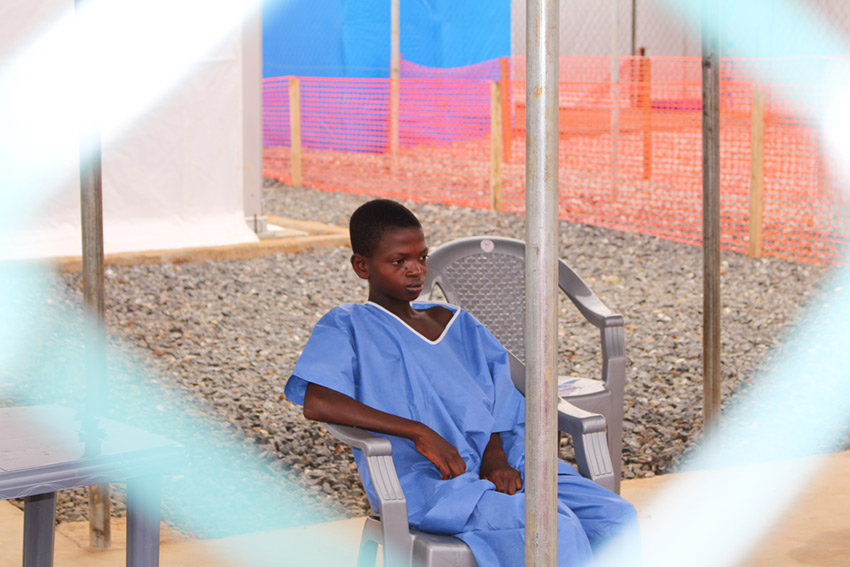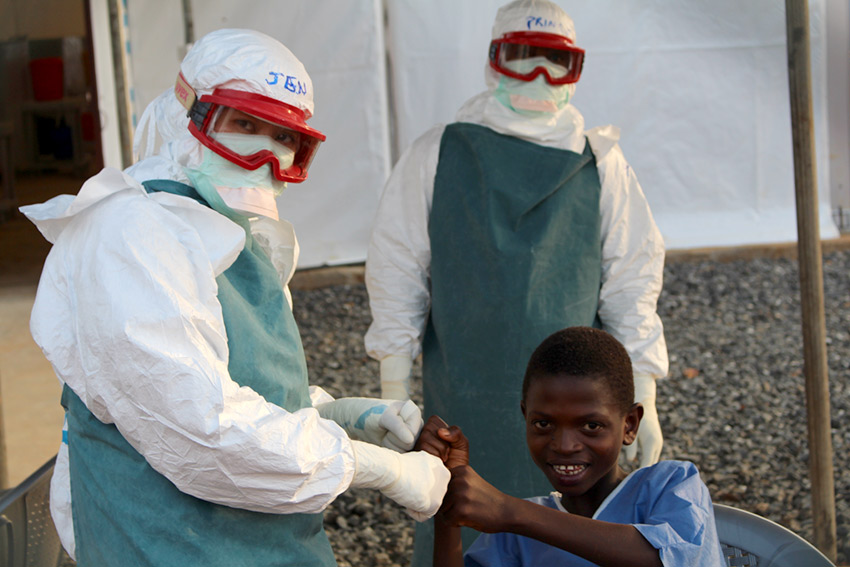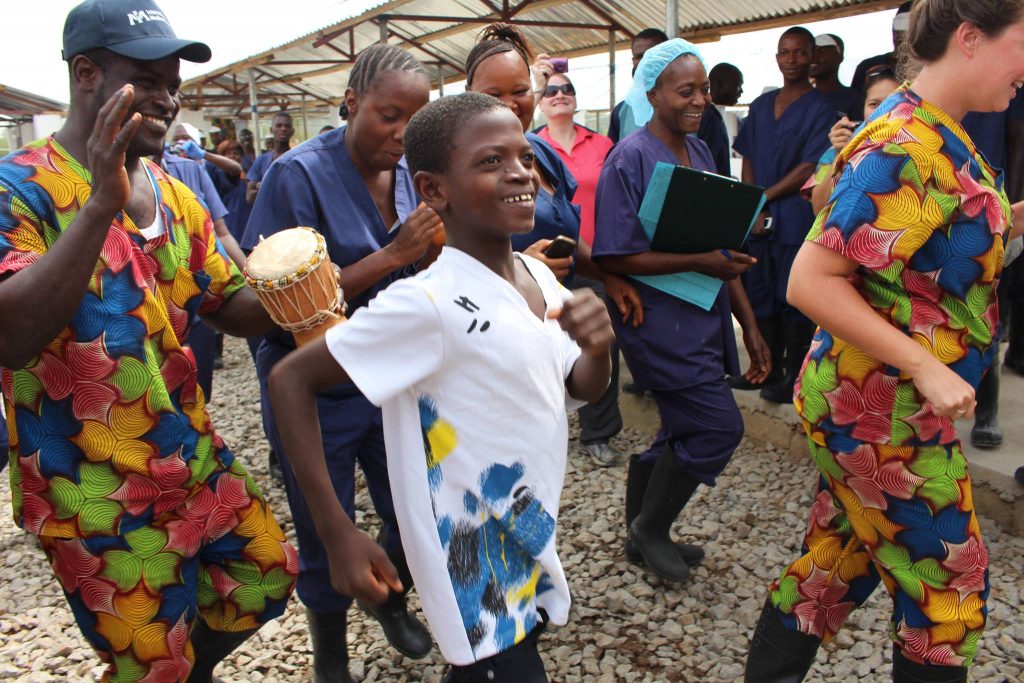It’s sometimes difficult to justify the smiles when there is so much sadness around, but at International Medical Corps’ Ebola Treatment Center (ETC) in Lunsar, Sierra Leone during the second weekend of December, there was definitely room for celebration.
Fourteen-year-old Abu had been with us for 10 days. When he arrived he was very sick. He said he had contracted Ebola from his sister who had been taken to another hospital long before he had been found. They were living with their uncle because their parents were already dead.
Abu was given plenty of food, fluids and medication and slowly but surely he was nursed back to health by the International Medical Corps’ doctors and nurses.

He started showing signs of improvement about a week before. “I don’t have a headache or a fever,” he told me. Then he grinned, “I feel fine,” he said. I asked him what he thought had helped him to get better, “lots of food,” he said, again with a huge grin on his face.
Over the next few days, doctors saw increasing signs of improvement and on Tuesday, Abu was tested for Ebola, along with one other patient, 25-year-old Ibrahim.
Ibrahim had been sick with Ebola since the beginning of November but his body had been able to fight back. When he arrived at the treatment center on December 4th, much to the surprise of the team meeting him, he jumped from the back of the ambulance looking fit as a fiddle.
Even though he seemed to have bounds of energy, which was great, when the tests came back, Abu’s was negative, but Ibrahim was still showing signs of having the Ebola virus.
Abu’s second test for the Ebola virus was done on Thursday, as was another testing for Ibrahim. This time, BOTH came back negative.

On Friday morning, doctors and nurses who had been treating both patients filed round to the rear entrance of the confirmed ward, an area used by family members to allow them to speak to their loved ones. Abu was tucking into a bowl of porridge – Ibrahim was sitting next to him, and through the tall wire fences, the doctors and nurses gave both Abu and Ibrahim the good news.
It was the first time I had seen Ibrahim smile. He used to be a teacher, and his world had collapsed when he found out he had Ebola. But news of his first negative test was enough to bring back some of the lost hope. “I feel great,” he told me after hearing the news. I asked him what he was looking forward to when leaving the ETC, “I must focus on my health first,” he told me.
Abu, meanwhile, was still grinning. He knew he was leaving that day.
After showering and changing into new clothes, a party! There was drumming and singing and dancing, even Abu himself joined in…he has the moves! The Paramount Chief of Marampa joined the celebration and met Abu. He was able to see for himself the great work International Medical Corps is doing for his people.
It had emerged, during an earlier conversation, that Abu loved riding bicycles. He had never had one of his own, but had been allowed to ride the bicycles belonging to some of the older boys in the village where he had lived.
As a gift, International Medical Corps gave Abu his own bicycle. It was a moment I will certainly never forget.
I looked toward the confirmed ward, and in the middle of the tent, I could see Ibrahim dancing to the sound of the music, knowing his own party might just be a few days away.
Sure enough, on Saturday, Ibrahim had his second Ebola test. On Sunday, it came back negative.
Later on Sunday, the sounds of drumming and singing could be heard echoing the walls of the International Medical Corps’ Ebola Treatment Center in Lunsar as Ibrahim was discharged.
“It feels good,” he said. “I’m happy.”
A few days earlier I had asked him if he wanted to go back into teaching when he recovered. He said he didn’t care what he did, as long as he could earn money to help his brothers and sister get a good education. “I would like to work here,” (at the Lunsar Ebola Treatment Center) he said before I left. I asked him why? “Because they understand me,” he said.
